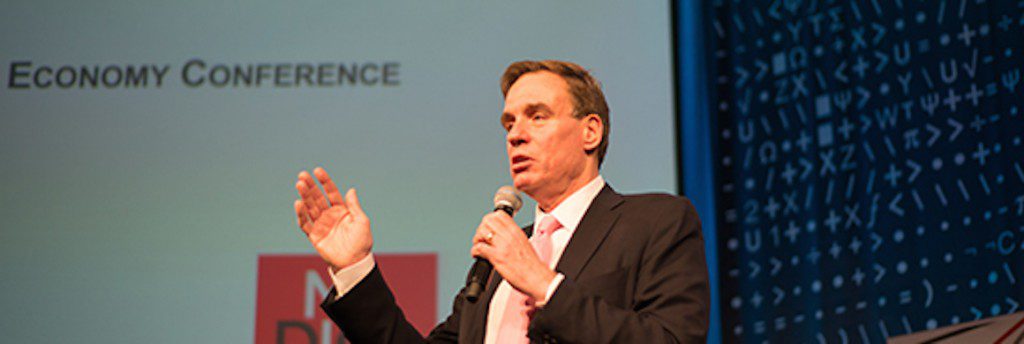MIT Sloan recently published a blog post about the recent On-Demand Economy conference, which the MIT Initiative on the Digital Economy and the Institute for Work and Employment Research hosted last week at the Media Lab. The conference was designed to survey the social implications of the “à la carte” economic model “built on the rental or sharing of assets and labor.”
The on-demand economy, as evidenced by AirBNB and Uber, has “thrown 20th century notions of work, employment, and income into disarray.” Many workers in this new model find themselves on a vertiginous balancing act where “freedom and flexibility” are pitted against “a lack of job security and myriad unknowns about taxes, health care, retirement, and unemployment.” Guest speaker Virginia Senator Mark Warner, who has made the gig economy a cornerstone of his political agenda, points out that “When you choose when to work, the whole notion of unemployment insurance or vacation time is a foreign concept.”
The pervasive question at the On-Demand Economy conference was how innovation could co-exist with benefits and employment security for independent contractors. Sen. Warner suggested that “government should work with financial technology companies” to imagine a solution. Before any concrete steps can be taken, however, Warner called on the government to “help dispel fears of litigation for on-demand economy startups, at least on a trial basis, to allow innovation to flourish.” According to the blog post, “The question of whether Uber drivers are employees or independent contractors, for example, could make or break the company.”
CEO and chairman of staffing firm ManPowerGroup Jonas Prising (Stockholm School of Economics MBA), argues that technological innovations in the last decade have inspired rapid growth and change within the labor market. Prising believes this is a mixed bag as the on-demand model will potentially accommodate a global population surge but also exacerbate “the divide between workers with skills and training and those without.”
Guest speaker David Rolf, president of Service Employees International Union 775, proposed “the creation of centralized, private sector, worker-led not-for-profits that would manage benefit pools paid into by employers based on payroll size.” Rolf implored, “We need as much innovation in labor institutions and social contract institutions as we do in the rest of economy.”
